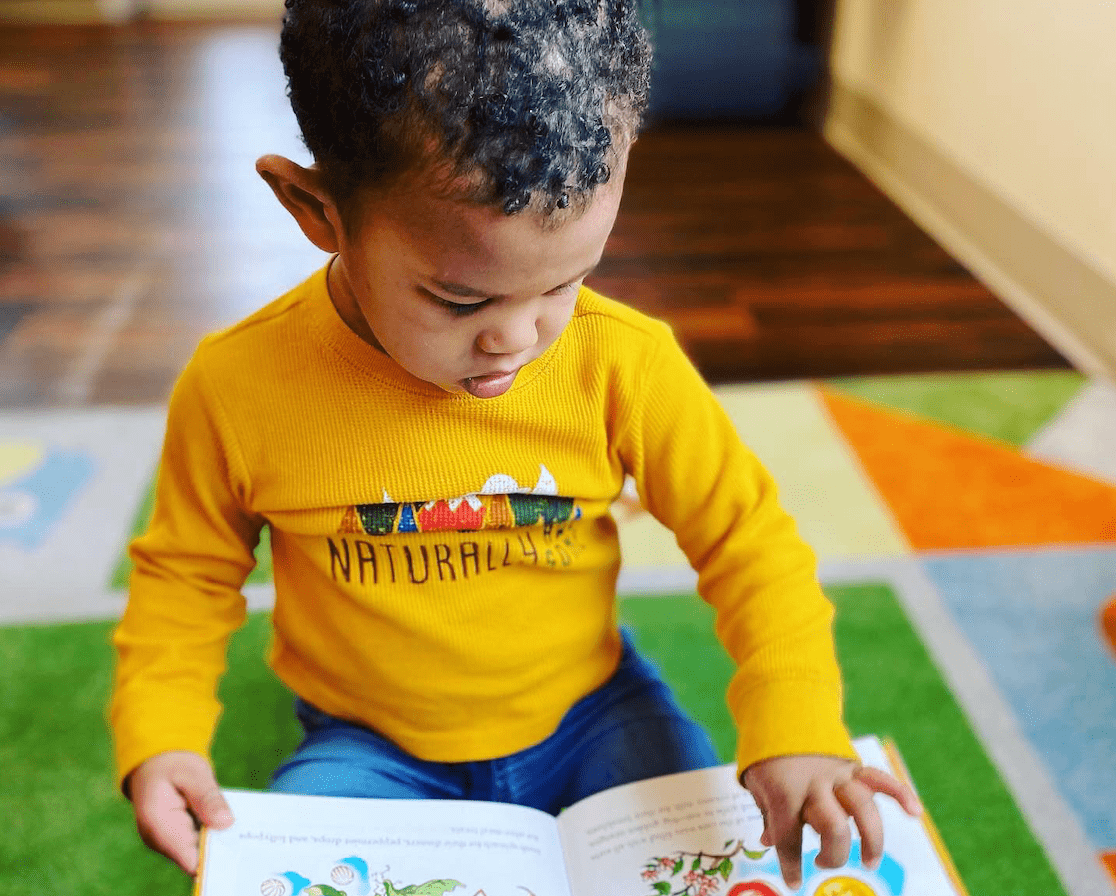
Literacy is an essential skill, a building block that kids use to construct language and improve their communication with and comprehension of their world. Many parents understand the importance of literacy to their child’s growth and development, but they may not always know why it’s such a key focus. During the first week of March, The Gardner School joined schools all across the country to celebrate Read Across America. It’s a weeklong celebration of all things books, reading, and storytelling. Even kids who aren’t reading yet can take time to celebrate their favorite stories, authors, and illustrators. In honor of one of our favorite weeks, here are a few lesser-known literacy activities to get kids excited about reading and writing.
1. Help your child write a book.
From the time spoken language begins, preschoolers are very interested in telling stories to the adults in their lives. Their stories may star themselves, family members, favorite characters, or even pets. An easy way to encourage early narrative creation is by putting together a book with your child.
First, have your preschooler tell you a story. As they’re describing the action, write down key words or phrases they say aloud on pieces of paper. (This action can help them connect spoken language to written symbols.) Next, have them illustrate the tale. There’s no need for fancy pictures here—even scribbles are great! When they’re done, use yarn, string, or staples to put the book together. Give it a place of importance in your child’s library, and read it alongside other published books.
2. Make reading a prized activity.
By allowing a child to select books to take with them during their daily routine, you’re sending the message that stories can be just as comforting, fun, or exciting as toys. Reading together can make a bedtime or morning ritual special, and extra stories and snuggles can cement reading as a joyful communal activity. Show excitement and interest in your own reading material as well. Eventually, they’ll want to mimic you reading both newspapers and chapter books.
3. Insert writing activities into imaginative play.
Researchers have found that imaginative play involving writing is a huge predictor of later literacy skills. Caregivers can introduce writing into imaginative play by presenting preschoolers with play that involves writing. Parents can act as restaurant servers, writing down a child’s order and then switching roles. Or, they may pretend to be a patient in a medical office, asking the preschool doctor to write down the symptoms they’re experiencing. Even the act of pretending to write can help with later literacy.
4. Integrate poetry and song.
Rhyming similar sounds together is one of the first stages of phonological awareness—the understanding that words are made up of combinations of sounds. The reason many children’s books contain rhyme is to encourage the pattern recognition that occurs when children match up sounds with letter shapes. Parents and caregivers can include rhyming in their daily activities by choosing a household object and rhyming words with that object. (Just be careful not to choose the word orange!) Encourage your child to provide additional rhymes, even if they’re nonsensical at first. Listening to children’s music is another way to start exploring letter sounds. Songs such as “Twinkle Twinkle, Little Star” contain simple one-word end line rhymes to introduce the concept.
5. Celebrate Read Across America.
This literacy celebration that kicks off in March encourages children of all ages to enjoy and relate to what they read by linking books and reading to other experiences in their lives and on the school year calendar. To reinforce what they may be hearing at school, mark the occasion by gifting new books and reading them aloud at mealtimes or bedtimes. This musical adventure with THE LITTLE PIANO is a great place to start!
The Gardner School Encourages Early Literacy
TGS knows how essential literacy skills are to the development of your child. Our daily schedule provides plenty of time for one-on-one and group reading, in order to help cultivate a deep love of books. Through our Learning Without Tears curriculum, even our youngest learners grow to love the act of forming letters and writing words. To learn more about why parents choose us to help build Pre-K skills, contact us to learn more or to schedule a virtual tour.
